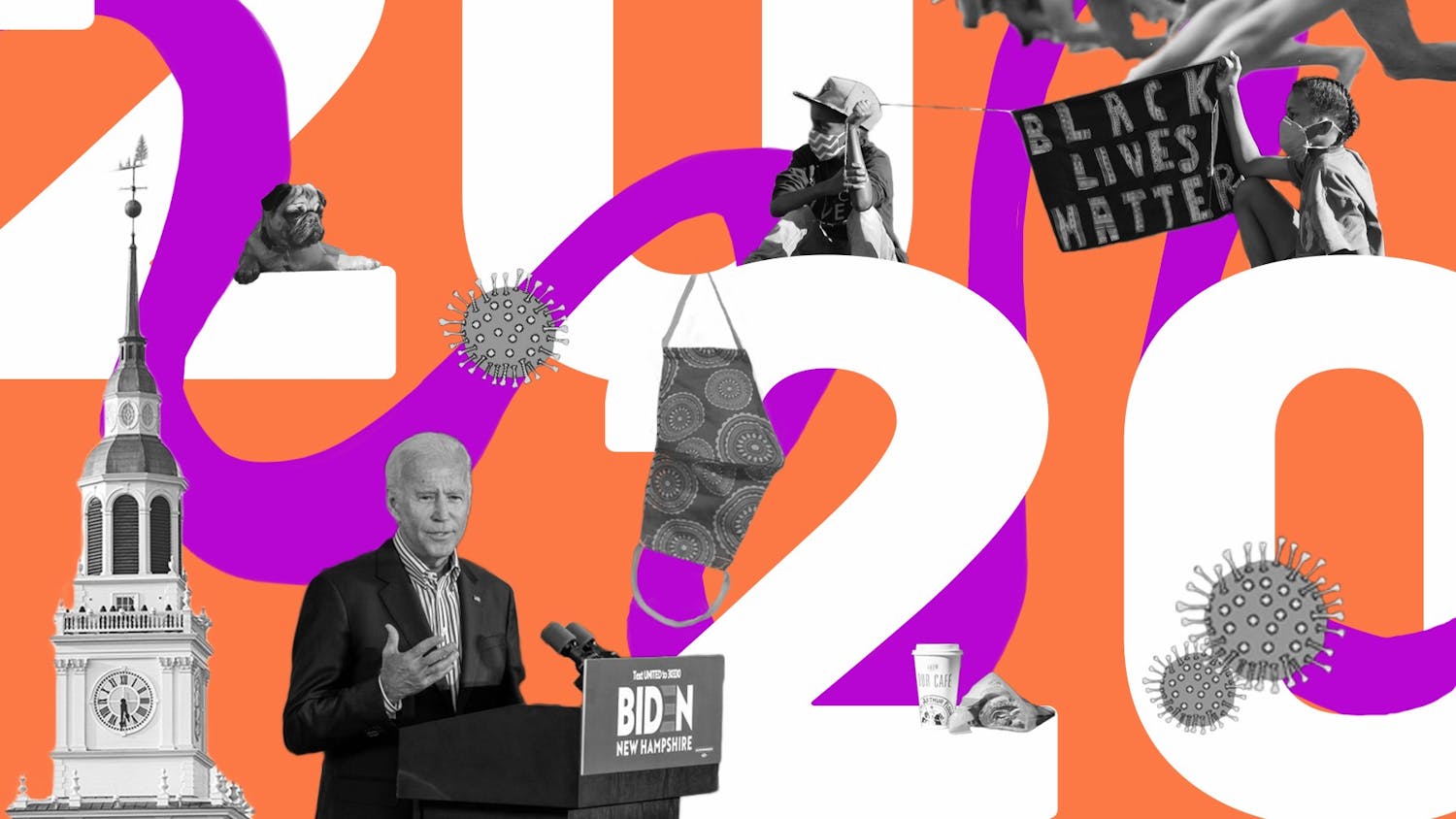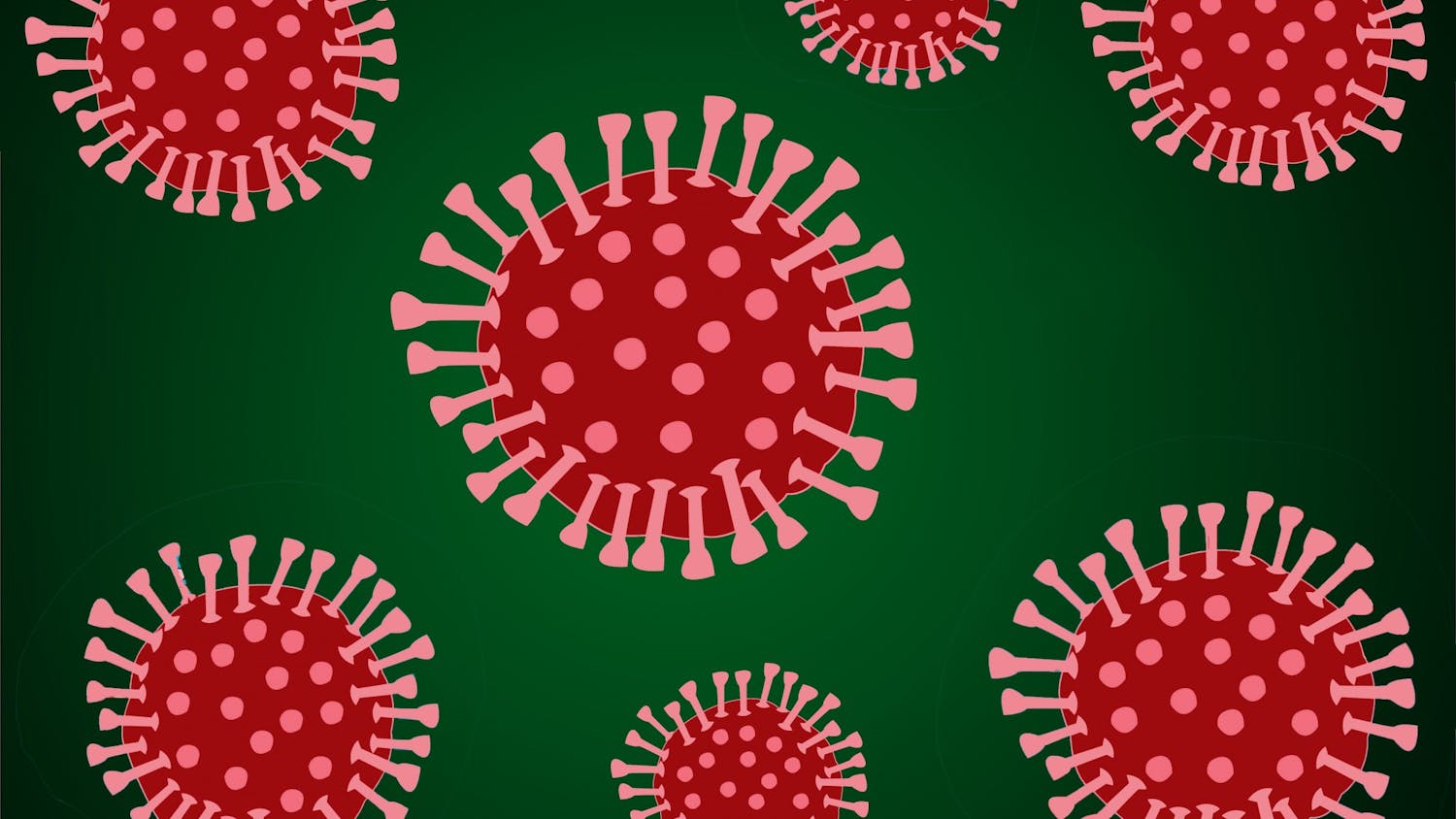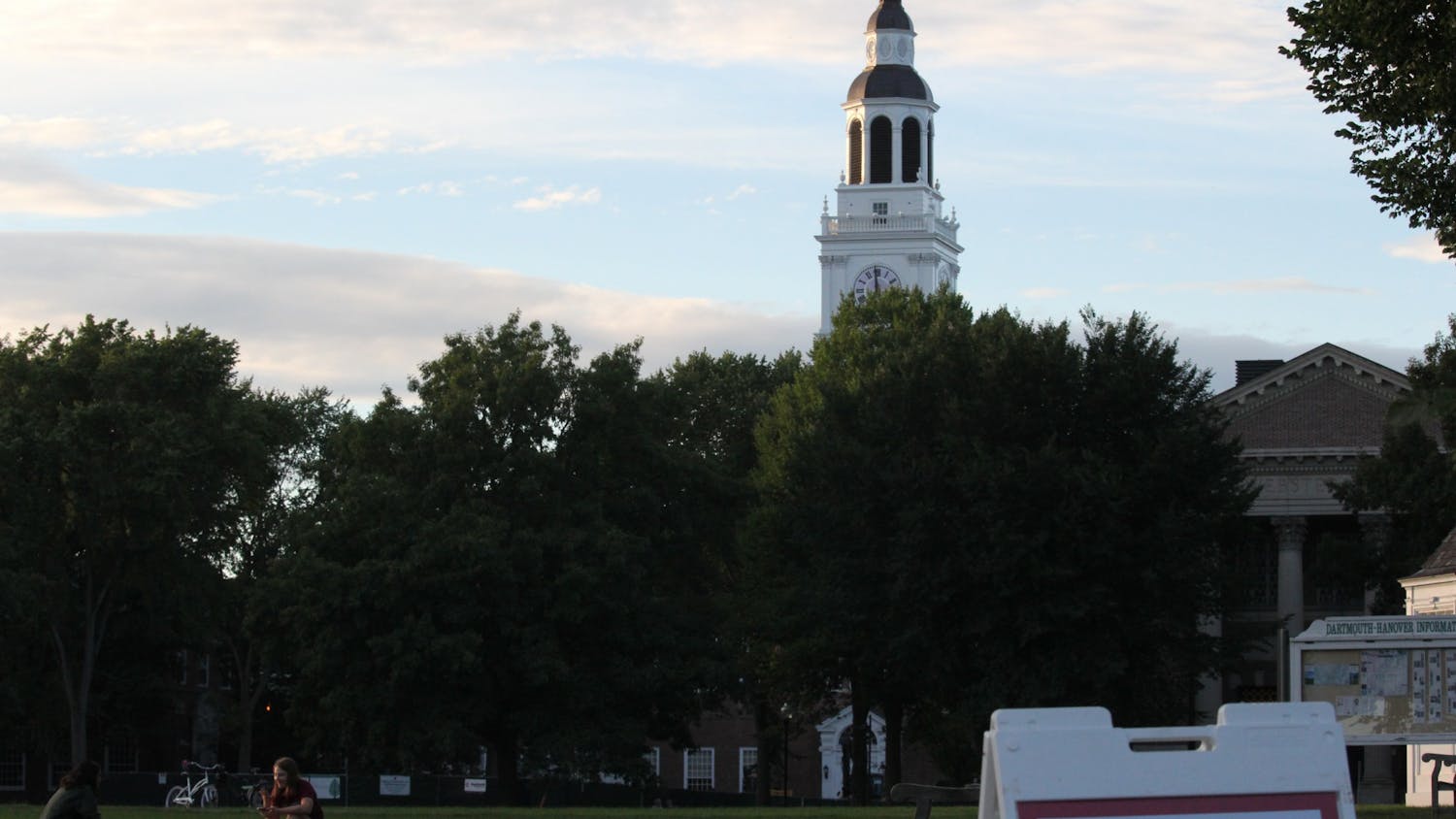This article is featured in the 2021 Winter Carnival special issue.
When Ryan McCann ’22 took the first EMS shift of fall term last September, it had been six months since Dartmouth EMS last ran a shift on campus. McCann remembered feeling apprehensive, particularly because it was the first weekend after quarantine ended for students on campus.
After a fairly smooth night, however, McCann quickly got “into the swing of things” as the term progressed.
In the six months during which Dartmouth EMS temporarily ceased operations, a team worked behind the scenes to plan how to reopen safely. In the meantime, some members scattered off campus also found ways to help their local communities.
During a normal term, Dartmouth EMS — a student-run organization licensed by the state of New Hampshire — provides services including emergency response and first aid training to the Dartmouth and Upper Valley community.
According to director of operations Ted Northup ’21, the organization relies on three ranks of care providers: tertiaries, secondaries and primaries. Tertiaries — who don’t need an EMT license — are responsible for talking to bystanders and collecting and recording information about the scene. Secondaries are responsible for taking vitals, and primaries lead the call and talk to patients. Northup added that the home base for Dartmouth EMS is in the basement of Dick’s House, with several rooms available for those on shift to sleep between calls.
Although the organization attracts many pre-med students, Northup, who studies engineering, said that it also draws in those who “want to be able to provide a contribution to the community.”
“It’s really a great way for people who want some exposure to medicine, but not the full medical doctor experience,” Northup said.
Dartmouth EMS member Sarah Jennewein ’21 said she joined as a sophomore because she had taken an emergency medicine class to be a lead climber with the Dartmouth Mountaineering Club. After realizing the importance of “having the knowledge to save people in the outdoors,” she became interested in emergency medicine and took on shifts as a member of Dartmouth EMS.
Before the pandemic, Jennewein said that her week consisted of training on Tuesday nights, where Dartmouth EMS members would review training slides and gather to run through practice calls, followed by weekend shifts.
“I'm really grateful for the community I found there,” Jennewein said. “I feel like there [are] a lot of people that have a really similar interest in giving their time to helping others, and I think that that's a really amazing group of people to be around.”
When Dartmouth transitioned to online classes last spring, Dartmouth EMS temporarily ceased operations. Northup said that Dartmouth’s decision to go remote “hit [Dartmouth EMS] by surprise,” because it canceled all their shifts and the ability to “do something that [they] love.”
After the announcement, Northup said the team took a couple of weeks to decide how Dartmouth EMS was going to move forward in the spring. Due to paused operations, Dartmouth EMS donated their personal protective gear to Safety and Security. While conversations continued into the summer, McCann, who serves as the operations officer, took it upon himself to create COVID-19 safety protocols for the team.
“Watching all the frontline workers [made me realize] that this was not the time to deprive the Dartmouth community of one more emergency response organization,” McCann said.
In early July, McCann started to compile a list of COVID-19 safety protocols to implement for Dartmouth EMS. He said he looked to the guidelines followed by the state of New Hampshire and those issued by the Centers for Disease Control and Prevention, National Institutes of Health and the World Health Organization. In particular, McCann considered the guidance provided in emails that Dartmouth EMS received from the state of New Hampshire about steps to protect themselves as care providers, such as the proper PPE to use.
Ann Bracken, College Health Service director of clinical medical services, has worked with Dartmouth EMS for many years and was also part of the conversations regarding COVID-19 safety protocols that took place in the summer.
One important part of the new protocols included how Dartmouth EMS would be able to use and occupy their space in Dick’s House, especially since Dick’s House no longer allows patients to stay overnight. Bracken said that she, alongside director of nursing Lauri Gallimore, gave Dartmouth EMS advice on how to “keep themselves safe [during shifts] and keep patients safe.”
McCann said that the month of August was spent working with Safety and Security and the College to try to get approval, which they received by the end of the month.
While the team developed COVID-19 safety protocols for resuming operations, many students decided to work on ambulances during their summer term. Haley Warzecha ’22, for example, worked in ambulances in her hometown of Norwich, Connecticut during her summer and fall off terms, over which she responded to more than 200 calls.
“I gained a lot of confidence in my clinical skills and my interaction with patients,” Warzecha said. “I had to learn a lot of flexibility on the job and being able to think on the spot, and also of being able to develop a relationship with patients.”
As the fall term approached, McCann and the team prepared to resume operations on campus, with altered procedures due to COVID-19. Members still followed campus guidelines, such as completing the daily College-mandated temperature self-assessment, but also had to abide by strict PPE and disinfectant protocols inside their Dick’s House office, according to McCann.
Jennewein added that N95 face masks, face shields and medical gowns are now the norm on every Dartmouth EMS shift.
During the fall, in addition to new procedures, shifts consisted of two people, a primary and a secondary, as opposed to the previous standard of three people to a shift. Their office, located in the basement of Dick’s House, accommodated only one person — as opposed to three before COVID-19 — so the other person on shift worked shifts from their dorm. There were only two shifts per week, Friday and Saturday nights, but still operating normally from 9 p.m. to 9 a.m.
The new COVID-19 safety procedures also impacted CPR and EMT training. Director of training Mikayla Hubner ’21 said that CPR training in the fall was conducted in tents outside, socially distanced and organized to “limit social contact.” Dartmouth EMS established a hybrid model, where lectures were conducted ahead of time, and the hands-on CPR component was conducted in the tents. Now, the winter course is following a hybrid model involving Zoom lectures and in-person training in Steele Hall.
Northup said his hope for the spring is a gradual return to three shifts per week — Wednesday, Friday and Saturday nights — as opposed to only weekends. Starting this term, shifts will now include tertiaries, allowing Dartmouth EMS members to work shifts that they were unable to in the fall, when only two responders were allowed on each call due to limited office space.
Joseph Bravo ’24 is a tertiary who was not able to take shifts in the fall. He said that although he would have liked the opportunity to run shifts in the fall, he is currently taking EMT classes through a private company so that when he returns to campus from his off term come spring, he can work shifts.
“I'm definitely excited for shifts,” Bravo said. “I'm glad I'm getting my license before spring, [so I’ll be] able to [take] shifts and hang out in the [Dartmouth EMS] bunker underneath Dick’s House.”
Looking back at Dartmouth EMS’s trajectory this past year, campus emergency manager Tom Schutzius praised the team for being “a great group of students” who “show a lot of initiative,” while Bracken noted that she has been “so impressed by their commitment and their abilities.”
Northup agreed, highlighting the role several members, including Warzecha, played at home during the pandemic.
“Even when we were shut down, and we couldn't do a lot, a number of members looked for local EMS ambulances to work on. They went out of their way to get licensed in their state and keep practicing medicine,” Northup said. “I think that was pretty incredible.”
Daniel Modesto ’24 is the News executive editor. He is from Brooklyn, New York, and is a Native American and Indigenous Studies major modified with Latin American, Latino and Caribbean Studies.




